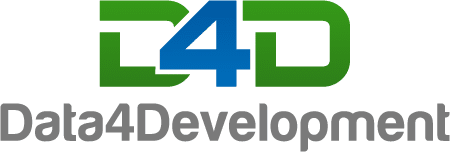We look back at a successful first D4D Open Tea of 2019! We would like to thank our host Aidsfonds and our speakers Eva Roos of Aidsfonds, Marieke Meeske of PAX for peace and Renald Buter of Datamission! Of course, we would also like to thank all participants for joining and contributing to the discussions and exchanging practices.
Putting a Human Face on Number – Making Data Speak
Central to the presentations and discussion was the human side of data. We have seen when the human face is used as source or subject of data, data starts to speak. This makes data meaningful and valuable, but not without challenges or risks..
Presentations
We collect all types of data, but how do we combine all these types of data in order to make data speak? Eva Roos (Policy Advisor Quality & Learning, Aidsfonds) presented Aidsfonds’ answer to the increasing quantity and variety of data sources and data sets. The open data platform ZOOM allows users to collect, combine and visualise data sets from multiple sources. Over the last months, they have been working on making data more meaningful by being able to zoom in on smaller scales (e.g. regional level). Analyzing data on regional, national or international scale has one common central denominator: Analyzing data always with a human interpretation.
Also in the PAX Human Security Survey (HSS), the human face is central in collecting, processing and using data. Marieke Meeske (Project Officer & Data Analyst HSS, PAX) shared her experience in collecting and analyzing the survey results. Leading in the Human Security Survey is the civilians’ interpretation of what security means to them and their community. Key to the process is engaging the community in interpreting the results of the survey and identifying priorities for action. As such, this data with a human face has helped to inform and contribute to bottom-up peacebuilding processes.
Central to DataMission’s motivation and initiatives is according to Renald Buter (Initiator, Data Mission) the human side to the story. Data Mission is a collective of data scientists and other digital technology professionals who are not only driven by data in their regular work, but who would also like to make their data and their skills available to create value for humanity. The key drivers to commit to a case is the human story of the case one side and the level of technical complexity on the other side. Do you have a data case that has a human story and is technically challenging that DataMission can sink its teeth into? Reach out!
Discussion
Yet centralizing the human side of data also brings practical challenges as well as ethical questions.
How far do we want to zoom in to really put a human face on a number? What does that mean for security and privacy? How can we responsibly make use of data with a human side, without doing harm?
How do we deal with the ever growing size of data? How do we ensure that we make full use of the data that we have? How can we avoid that all organizations collect the same information in isolation? How can we facilitate the sharing and exchange of data collected? And most of all, how could make the cleaning of data into a meaningful dataset less time consuming?
Are you interested to engage with these discussions with fellow data professionals? Come join our next D4D Open Tea!
D4D Open Tea
The D4D Open Tea is hosted four times a year and is an informal network meeting about information & data, giving data professionals the opportunity to meet and get to know each other. The aim is to learn from each other’s (data) challenges and provide fresh insight or new points of view rather than merely sharing success stories. Do you want to join our next Open Tea? Register for our newsletter at the bottom of the page or stay up to date via our newsfeed on our website, or join our Meetup group! If you like to host an Open Tea at your organisation, or if you like to present your case and discuss your questions with a group of peer data professionals, let us know, via the group or by contacting Data4Development.
